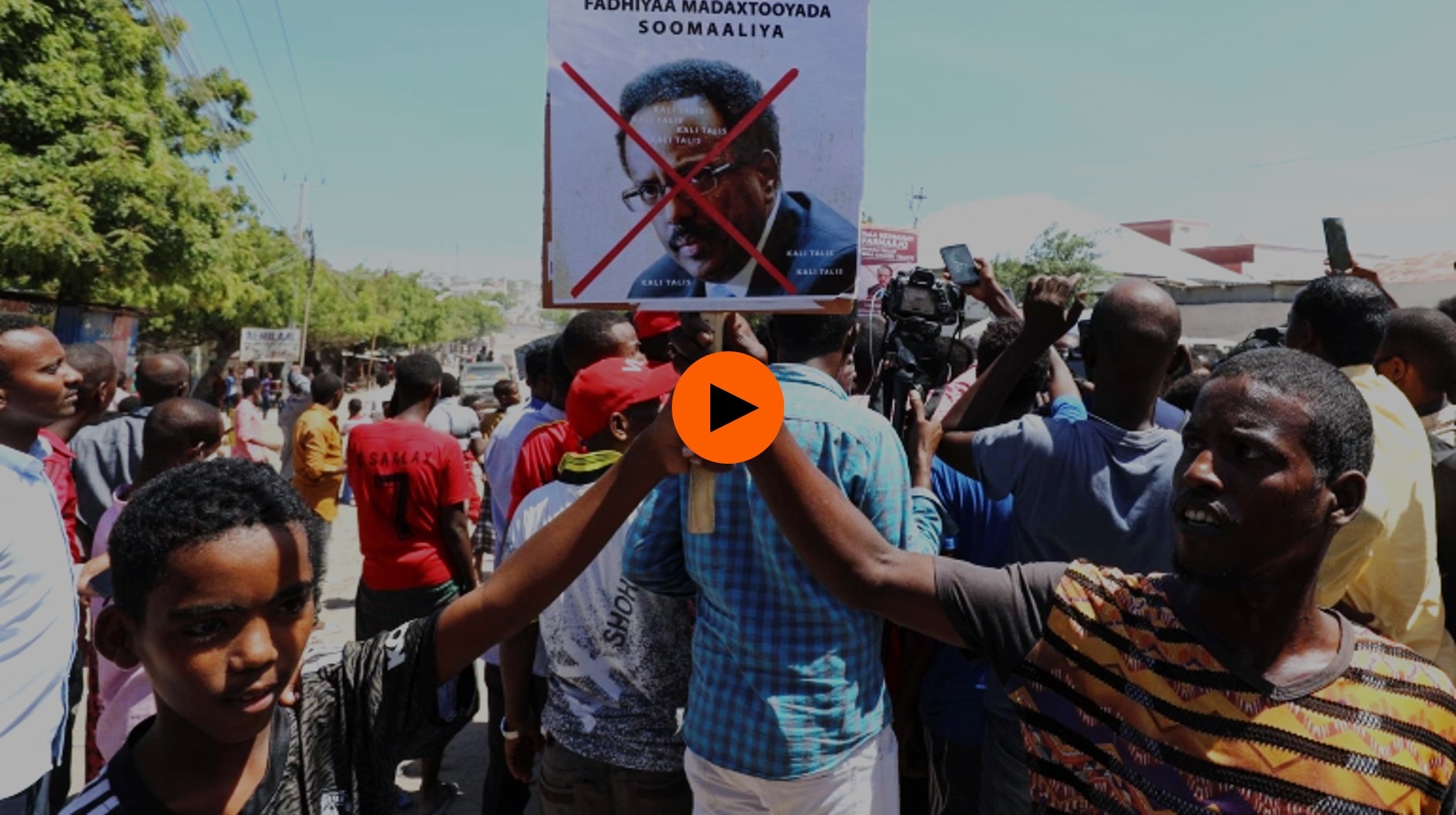
Supporters of Somali President Clash With Opponents
Supporters of Somalia’s President Mohamed Abdullahi Mohamed and those opposed to the extension of his four-year term clashed on Sunday on the streets of the capital Mogadishu, residents said.
The president signed a law in mid-April extending his mandate for two years, stoking opposition inside Somalia and putting him on a collision course with Western and other donors opposed to the move.
Somalia, which plunged into war and chaos in 1991, has been struggling to re-establish the authority of central government and rebuild the nation, with international help. The failure to hold elections that were due in February sparked a new crisis.
“There is gunfire between pro-opposition military and government forces at Fagah Junction,” Halima Osman, a resident of Fagah in Mogadishu, told the news agency.
A witness saw four military vehicles positioned in one place in the Fagah area.
Al Jazeera’s Catherine Soi, reporting from Nairobi in neighbouring Kenya, said the situation is tense.
“People are very worried about the security situation. Especially now with what appears to be the involvement of the military taking sides,” Soi said.
On Friday, the UN Security Council called on all sides “to reject violence and resume dialogue as a matter of urgency and without precondition”, underscoring its concern over the country’s political crisis.
“The members of the Security Council expressed their deep concern about the continued political impasse and disagreement among Somalia’s political leaders on the model for elections,” the document said.
The Security Council on March 31, following an urgent meeting, had called on Somali authorities to resolve the dispute over the electoral process.
The legal authority of President Mohamed, better known as Farmajo, has been in doubt since February when his four-year term expired before fresh presidential elections were held.
A bill earlier this month extending his mandate by two years bypassed the Senate after being adopted by the lower house of parliament.
Opposition parties decried the move as an unconstitutional bid to cling to power, and the law was criticised by the international community.
The president and leaders of Somalia’s five semi-autonomous federal states had reached an agreement in September that paved the way for indirect parliamentary and presidential elections in late 2020 and early 2021.
But it fell apart as squabbles erupted over how to conduct the vote, and multiple rounds of talks have failed to break the impasse.
The new law paves the way for a one-person, one-vote election in 2023 – the first such direct poll since 1969 – which Somalis have been promised for years and no government has managed to deliver.
The UN Security Council statement added that the political impasse is also “diverting attention from pressing problems such as floods, drought, desert locusts, the COVID-19 pandemic, and combatting the terrorist threat of al-Shabab”.

